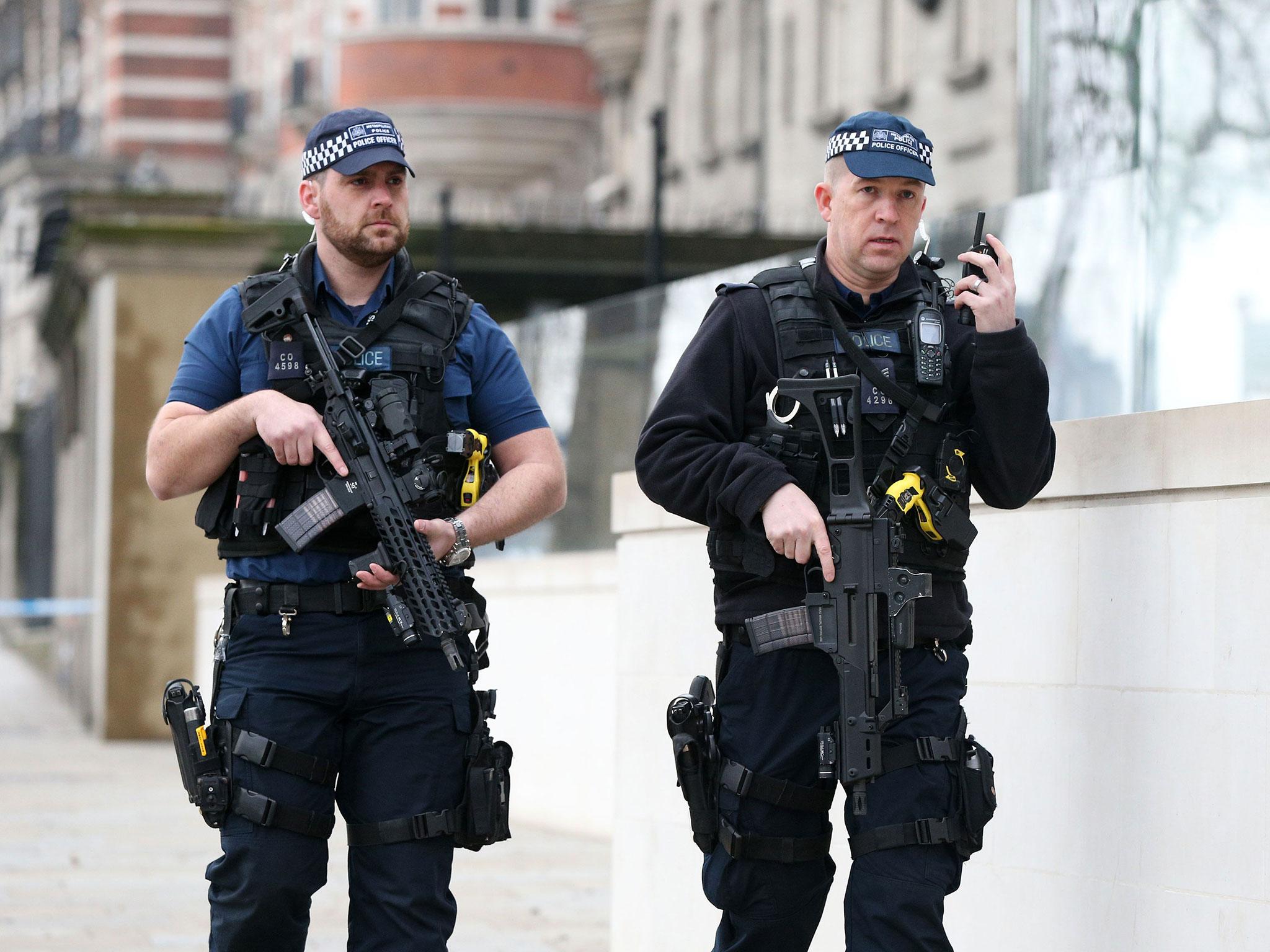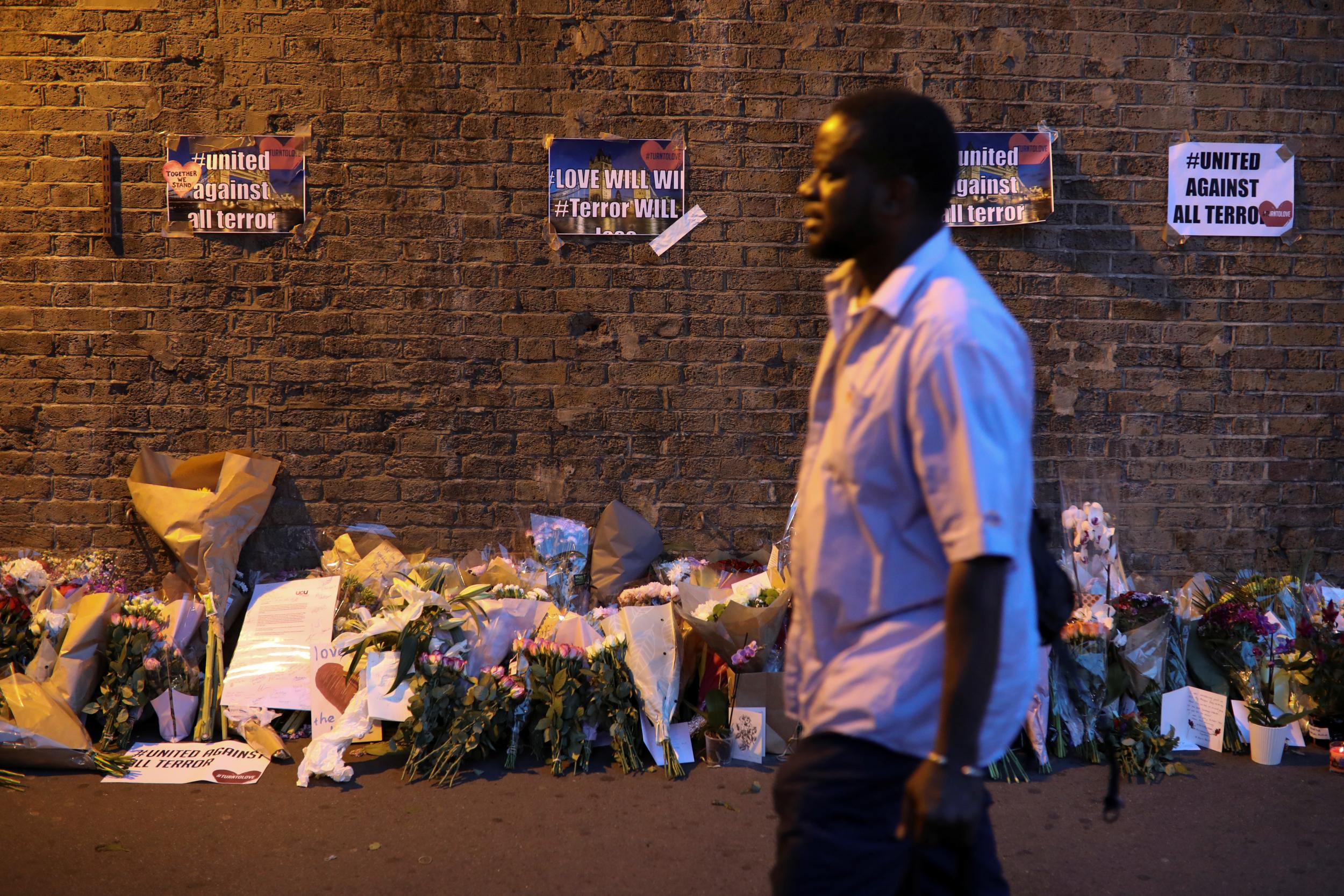Isis losses in Syria and Iraq not reducing terror threat in UK, police chief warns
Six terror plots foiled in past four months but 3,000 potential threats remain under observation

The threat of Isis-linked terror attacks in the UK continues to rise despite heavy military losses for the group in Iraq and Syria, the UK’s most senior police officer has warned.
Cressida Dick, the Commissioner of the Metropolitan Police, said six plots have been thwarted in the last four months alone and she expects the figure to rise.
“Since March this year, the tempo has changed,” she told delegates at the annual Lord Mayor's defence and security lecture, listing the “ghastly” attacks that left 36 people dead and 200 injured in Westminster, Manchester, London Bridge and Finsbury Park.
“Progress on the ground in Syria and Iraq does not necessarily translate into a reduction in threat here.”
Her caution came after triumphant statements from Government ministers following Iraqi forces’ victory over Isis in Mosul.
Sir Michael Fallon, the Defence Secretary, welcomed the jihadis’ “defeat in a city that was ground zero for their so-called caliphate”, while Theresa May commended the bravery and sacrifice of Iraqi forces but conceded Isis’ ideology “defeated through military intervention alone”.

Ms Dick said 13 lethal terror plots were foiled from June 2013 to March this year, amid increasing numbers of arrests seeing 340 suspects detained in the past two years.
“We must not deny the scale of this challenge,” she added, saying MI5 is monitoring 3,000 individuals across the UK who are assessed as posing the biggest threat.
There are 20,000 other former subjects whose risk remains subject to review and the number is expected to rise, as the national terror alert level remains at "severe".
Khalid Masood, who launched the Westminster attack, and London Bridge ringleader Khuram Butt are among the terrorists who were known to authorities but not judged to be an imminent risk.
Ms Dick did not discuss ongoing investigations but said part of the growing challenge was the use of “low tech and relatively unsophisticated” methods being promoted by Isis, such as car and lorry rammings and stabbings.
“These less sophisticated attacks can mature faster making detection harder,” the Commissioner warned.

Following the terror attacks in Finsbury Park and murder of Labour MP Jo Cox, she also highlighted the threat emanating from the far-right, saying 14 domestic extremists with “lethal capability and intent” were in custody.
She said most recent atrocities in the UK were mounted by homegrown extremists “acting in small groups or apparently alone”, adding: “The bulk of this domestic threat seems to be from those who are inspired by overseas networks, though there have undoubtedly been some who have been more directly enabled by them and we should not assume that attempts by senior leaderships of overseas groups to direct UK attacks have gone away.”
Europol and other international security agencies have sounded repeated warnings over the danger stemming from foreign Isis fighters seeking to return to their home countries as the group loses territory in Syria and Iraq.
According to Home Office figures, at least 850 suspected jihadis have travelled to Syria, with 15 per cent known to have been killed and just under half returning to the UK.
“Many of the most dangerous individuals remain overseas,” said Amber Rudd in a recent Home Office report.

“UK-linked individuals who travel to fight in Syria and Iraq pose a clear threat to our country’s security, and we continue to work at a national and international level to mitigate the risk they pose.”
Authorities have hailed success at preventing Isis supporters from travelling to join the group abroad, but tightening restrictions across Europe and the Middle East have driven a change in tactics by the group as it shifts back into “insurgency mode”.
Its propaganda, once focused on attracting men and women to build the so-called Islamic State, is now calling on followers to remain in their home countries and launch terror attacks whenever and however they can.
Ms Dick said both Isis and al-Qaeda were exploiting technology to project their threat around the world, sparking efforts to “contest the narrative of jihad”, prevent radicalisation and take down online propaganda.
“The modern threat, more than ever, includes the encouraging of others to commit atrocious acts,” she added.
“That virus can infect communities and is spreading faster and more easily due to the internet.
“We have large numbers of apparently volatile individuals in the UK, some of whom become determined to die, who may have been inspired largely through the web and decided on methodology learned from there too.”
Despite efforts to take down Isis and al-Qaeda material, jihadi magazines and terror manuals including bomb-making instructions and advice on lorry attacks remains available online.
There is also a far wider pool of extremist material including hate preaching and fundamental texts being propagated by Islamist groups like the network surrounding Anjem Choudary, whose members have been linked to a number of UK terror attacks.
The Home Secretary has taken aim at technology firms over the spread of propaganda, as well as arguing end-to-end encryption technology including popular mobile apps were making terrorist communications more difficult to detect and counter.
But she has fended off criticism of the Government’s own programmes including Prevent, claiming 1,000 people at risk of being drawn into terrorism have been supported since 2012.
The Commissioner praised the work undertaken as part of the UK’s Contest counter-terror strategy but said “it is manifestly not enough”, adding: “Clearly in the light of this latest shift in threat, in view of the terrible attacks, there is a need to review the strategy again and as a country we will need to step change in many areas.
“This is what those who work in countering terrorism have always done - the threat changes, it morphs, we must adapt with it.”
Join our commenting forum
Join thought-provoking conversations, follow other Independent readers and see their replies
Comments